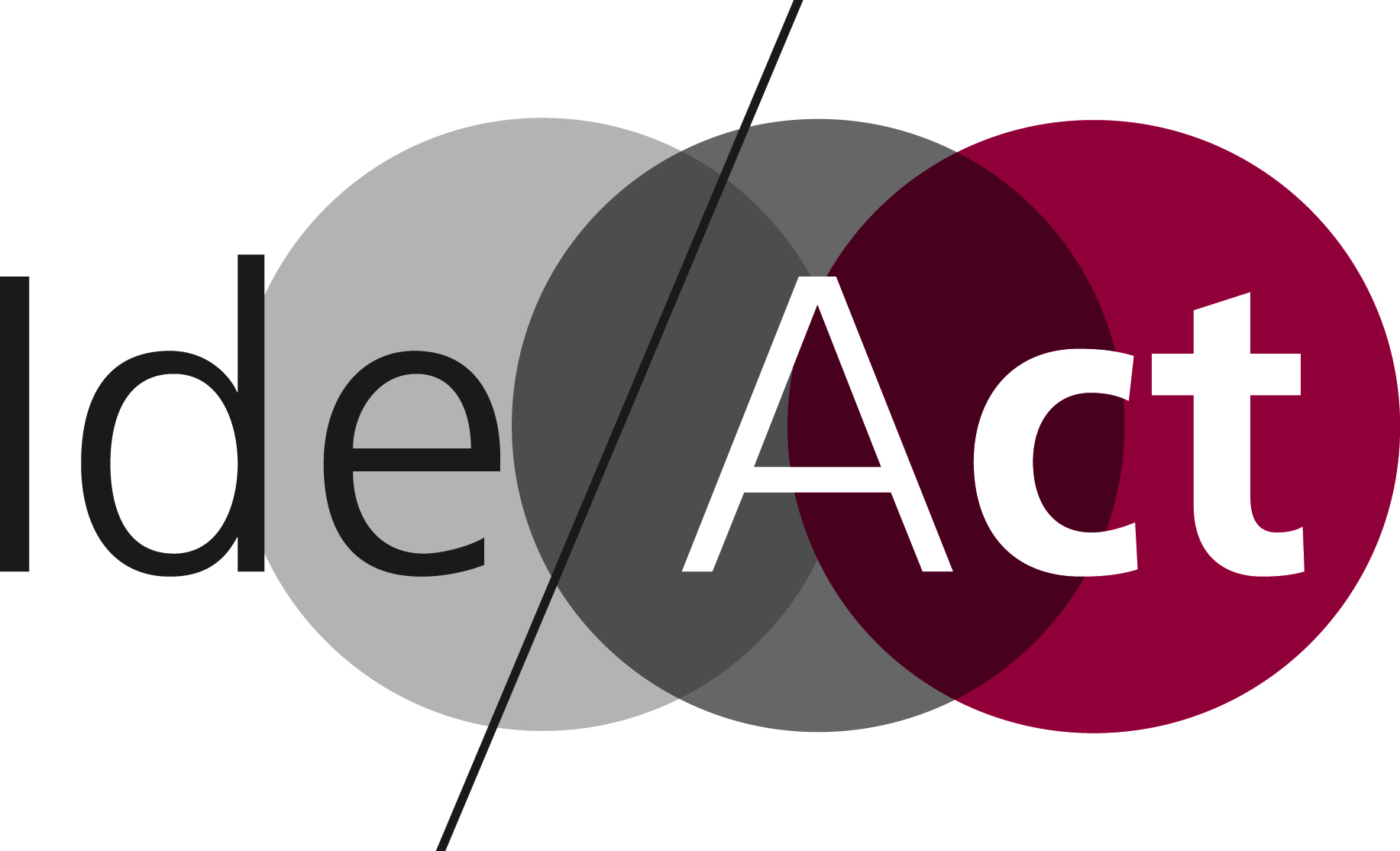
Information
The lab offers Psychology students the opportunity to undertake academic or postgraduate practical-theoretical internships.
Who we are
IDEaCT Social Lab develops technological innovation by studying the implementation of ICT by specific social and real-world groups. The goal is to guide the design processes of the next generation of ICT by engaging user communities in the various design phases, from observing their daily activities to collaborative design sessions to evaluating prototypes.
What we do
The IDEaCTSocial Lab:
focuses on technological innovation by bringing together the conception phase of an ICT product with its introduction into specific social contexts of use;
strategically connects academic and applied social research.
IDeACT Social Lab provides companies with expertise in Interaction Design through specific collaborative projects aimed at analyzing ICT (Information and Communication Technologies) usage contexts and designing/redesigning ICT-based products and services. This analysis is essential to ensure the effectiveness and efficiency of products in meeting user needs in the specific contexts for which they are designed.
The lab focuses on two main research areas:
studying emerging technologies and their potential;
understanding the nature of human-technology interaction in specific contexts, to identify which physical, cognitive, and cultural aspects of users should be incorporated into optimal design.
Equipment
The lab houses several workstations with graphics, multimedia, and web software, as well as digital audio and video processing. It also features equipment for creating and evaluating virtual reality environments according to the principles of Environmental Psychology.
Research Areas and Services
IDEaCT Social Lab offers companies services in the following areas: Accessibility, Digital Media, E-services, Interface, Mobile Technologies, Artificial Intelligence, Virtual Reality, Social Sustainability, and Social Well-being. The lab's services focus on studying communities and target groups of potential users to facilitate the elicitation of positive attitudes toward the adoption of innovative technological services.
In specific cases, social processes targeting vulnerable groups are also given particular consideration.
Services
SERVICE DESIGN THINKING
User Activity Analysis
The IDEaCT Social Lab offers strategic analyses of ICT-based devices and services, and their implementation in real-world contexts and everyday life.
The objective of this user activity analysis is to identify guidelines for ICT design related to the user experience.
The services offered by the IDEaCT Social Lab include:
Ethnography;
Focus groups;
User stories;
User and Work Process Modeling.
Design
To support the design of new technologies, the IDEaCT Social Lab provides expertise to develop:
Collaborative sessions;
Innovative concepts;
Prototypes.
Evaluation
IDEaCT Social Lab staff manages evaluation processes for prototypes and technological devices, with the aim of obtaining useful insights for redesigning artifacts based on user needs.
The IDEaCT Social Lab offers:
Heuristic or "expert" evaluations;
User evaluations.
STRATEGIC ORGANIZATIONAL COUNSELING (SOC)
IDEaCT Social Lab offers companies Strategic Organizational Consulting (SOC) sessions to guide the creation of innovative services and facilitate internal organizational processes, essential for effective management and delivery of services.
PARTICIPATORY PROCESSES FOR THE PROMOTION OF SOCIAL SUSTAINABILITY AND SOCIAL WELL-BEING
The IDEaCT Social Lab team provides evidence-based support and promotion for the implementation of participatory processes, targeting a wide range of stakeholders: civic and religious associations, cultural organizations, and political institutions.
The IDEaCT Social Lab also specializes in the design and management of social sustainability initiatives, with a particular focus on empowering the most vulnerable groups.
Using innovative research methods, both quantitative and qualitative, as well as visual and virtual methodologies, the IDEaCT Social Lab promotes and coordinates studies on well-being, solidarity, and social love on an international scale.
Information
The lab offers Psychology students the opportunity to undertake academic or postgraduate practical-theoretical internships.
Research Group
Scientific Responsibility
• Alessandra Talamo is a Full Professor in the Department of Developmental and Socialization Psychology at Sapienza University of Rome, where she teaches "Technological Innovation and Organizational Processes." She holds a PhD in Experimental Pedagogy and currently works on technological and social innovation, user experience, and organizational psychology.
• Silvia Cataldi is an Associate Professor in the Department of Developmental and Socialization Psychology at Sapienza University of Rome, where she teaches "Sociology." She holds a PhD in Social Research Methodology and currently works on methodological aspects of social research, emerging models of cultural and social identity, regimes of social action, social dialogue, and public sociology.
Research Collaborators
• Silvia Marocco
• Elena Grossi
• Federica Floridi
Research projects
Some of the Ux Unit's research projects:
PROACTIVE;
Cooperation in computer-mediated communication environments (CUN);
Practices of mediated collaboration in virtual communities (MURST);
Opera;
Euroland;
ITCOLE;
HYPETCCO;
European Schools Project;
Sypredem;
CL-Net Computer;
ECOLE - European COLLABORATIVE LEARNING;
Synapsis.

